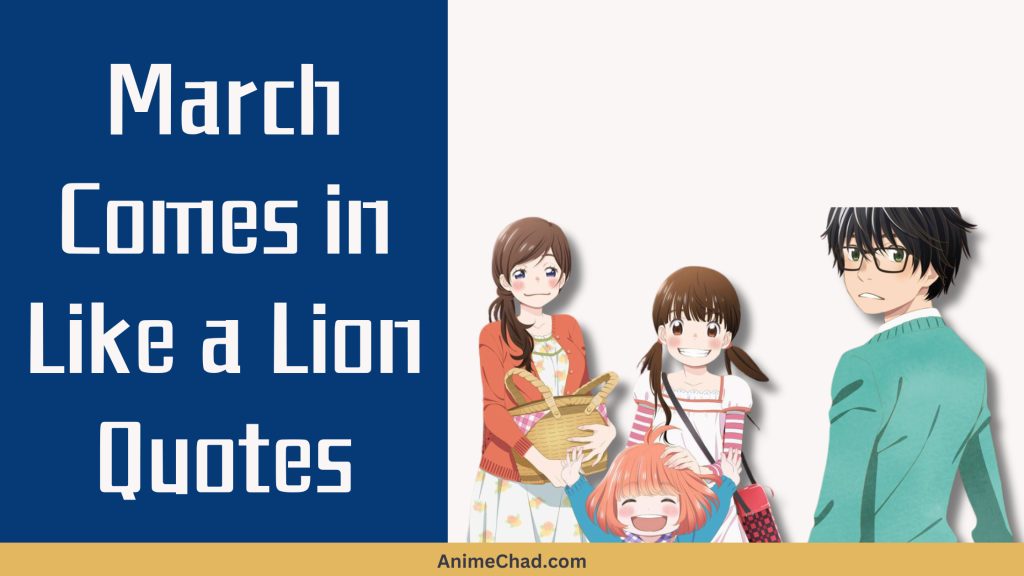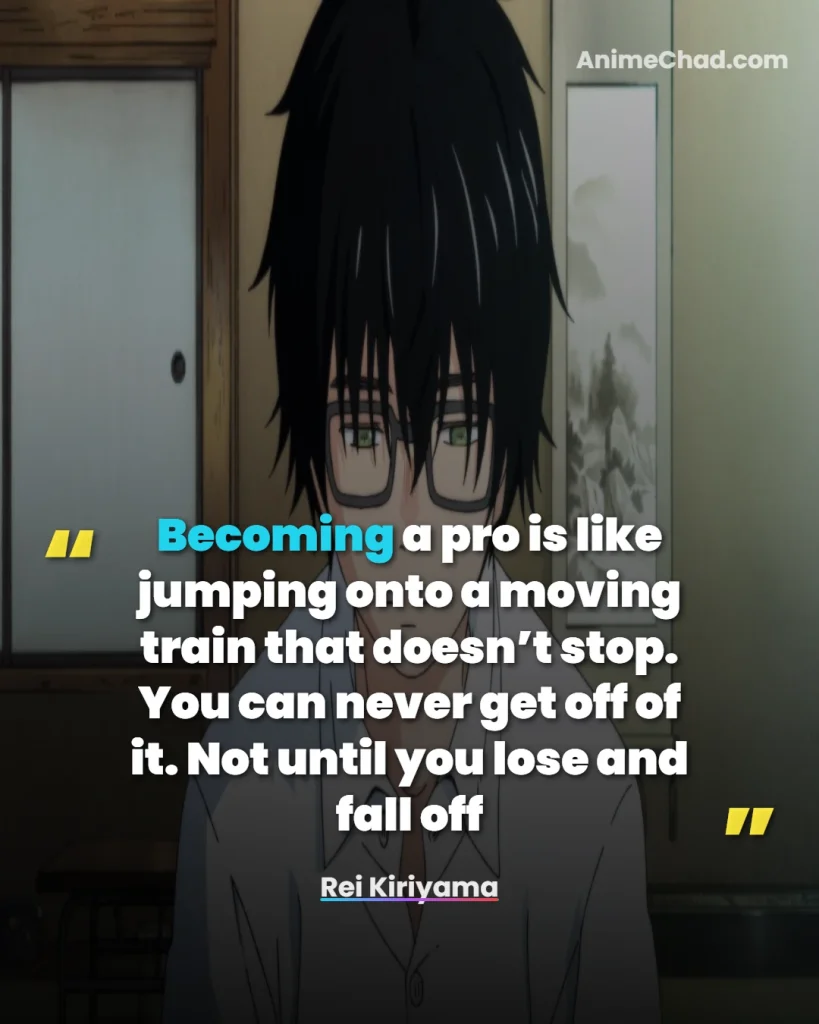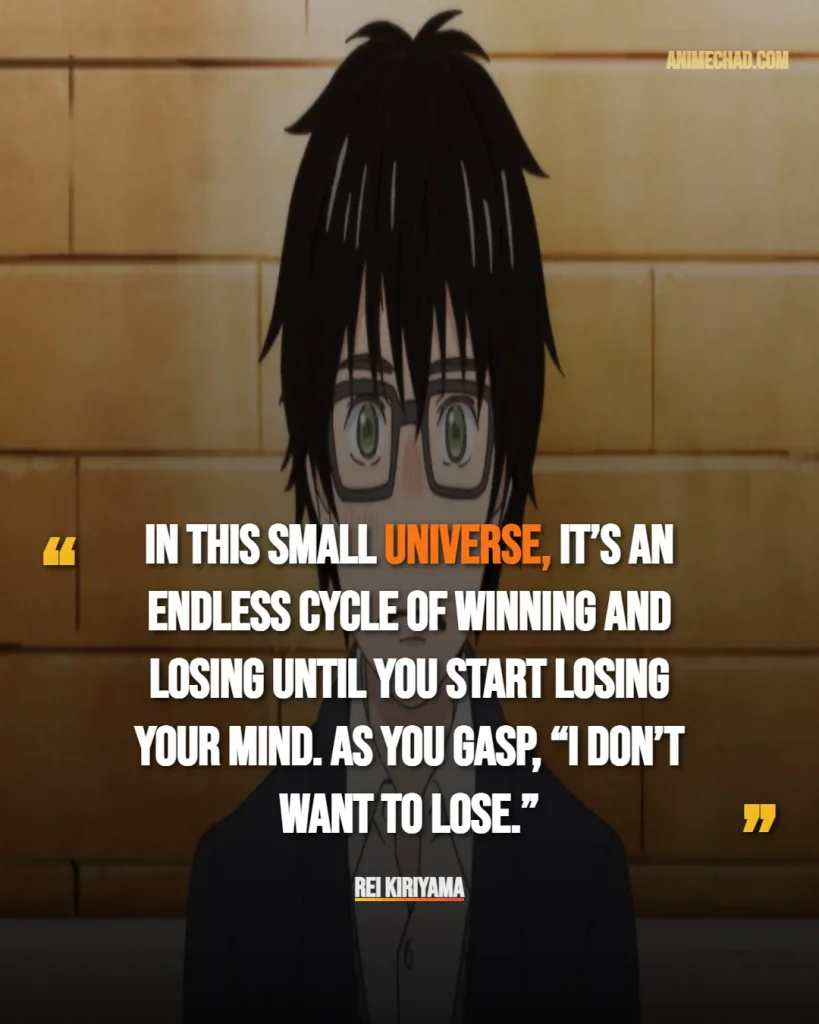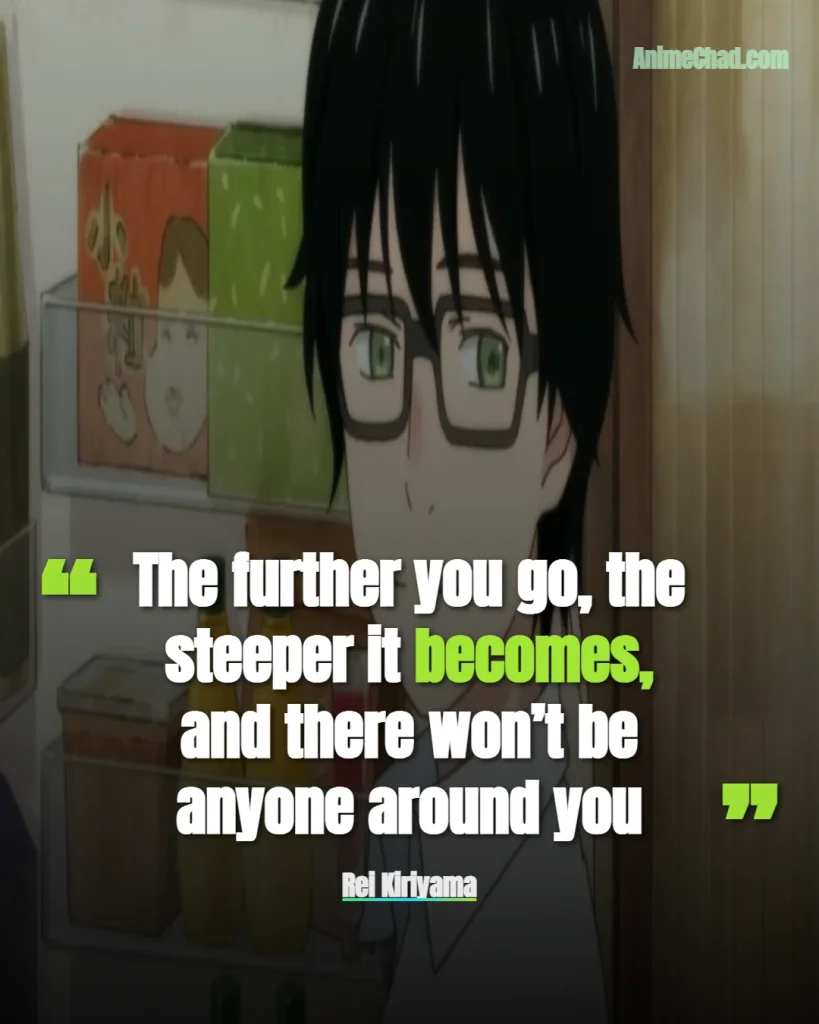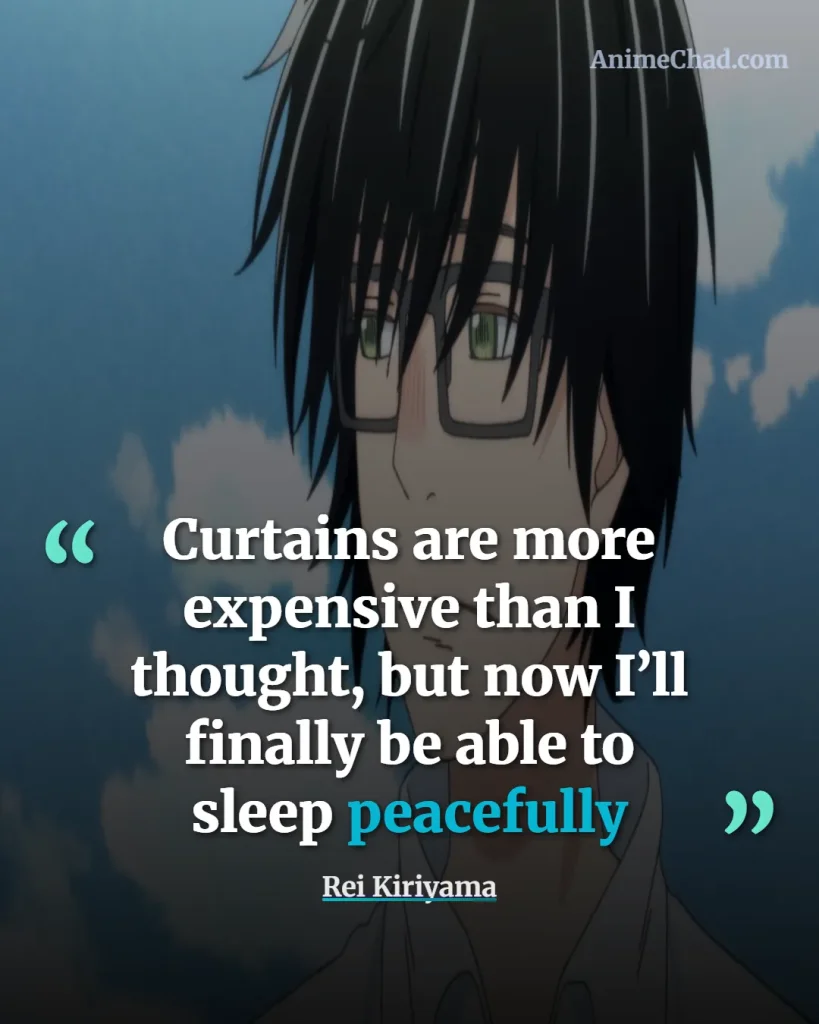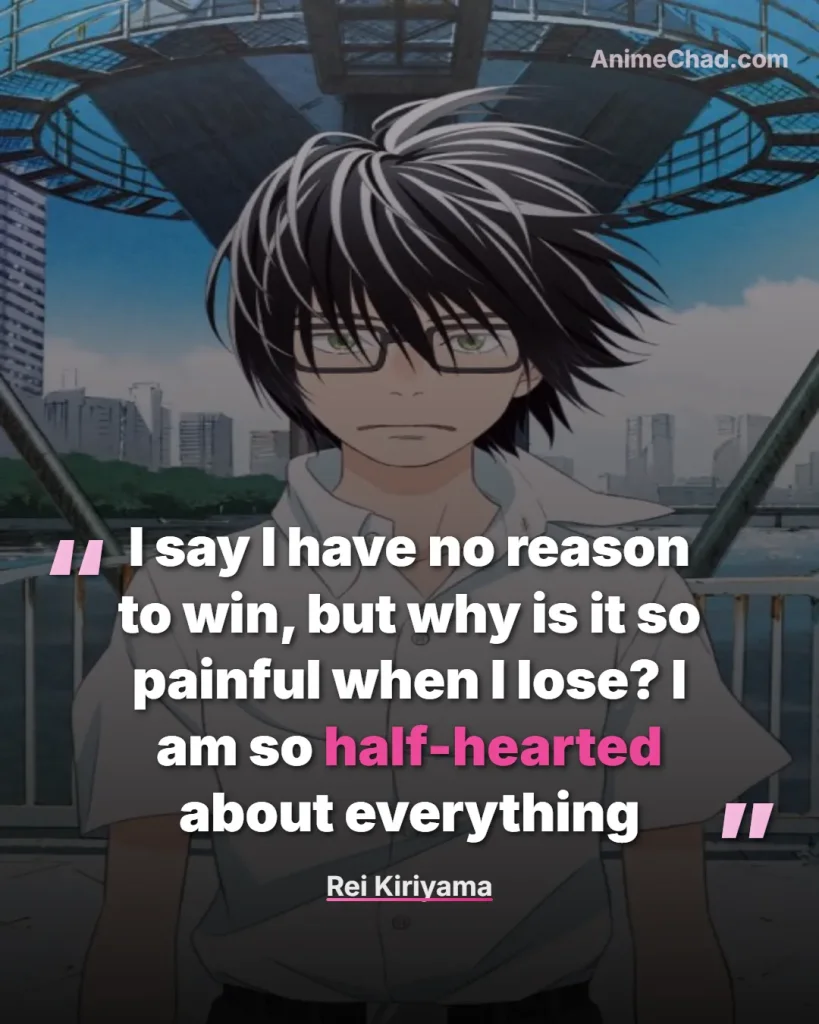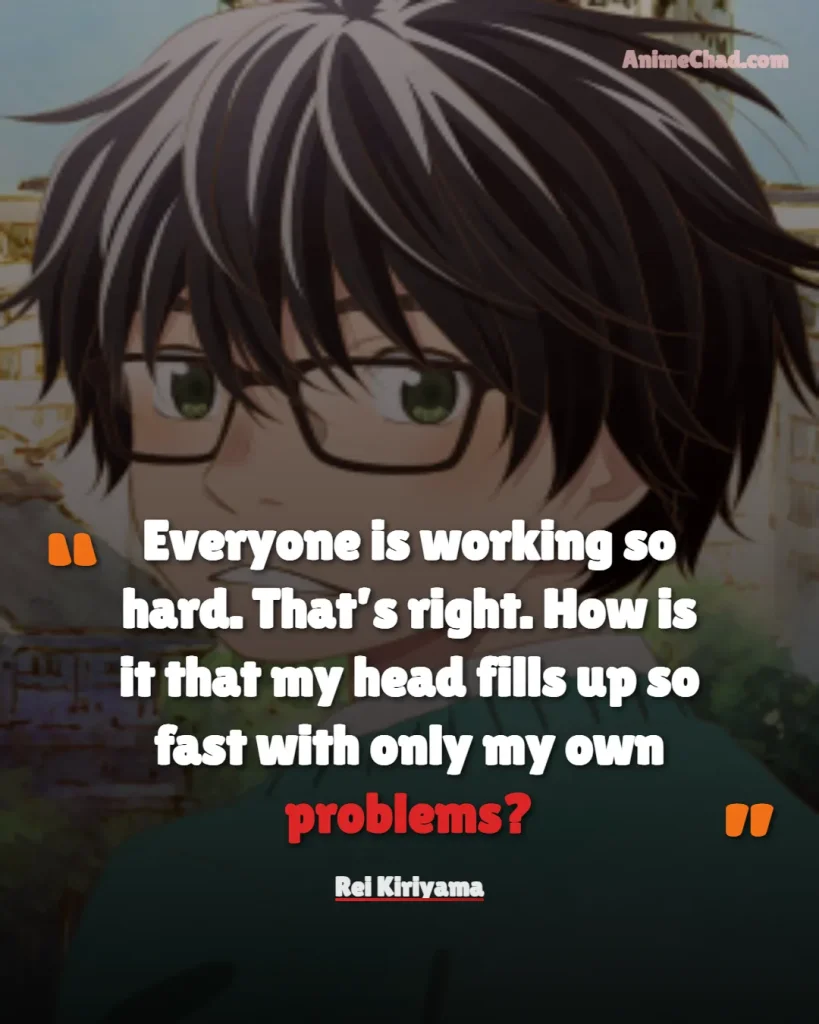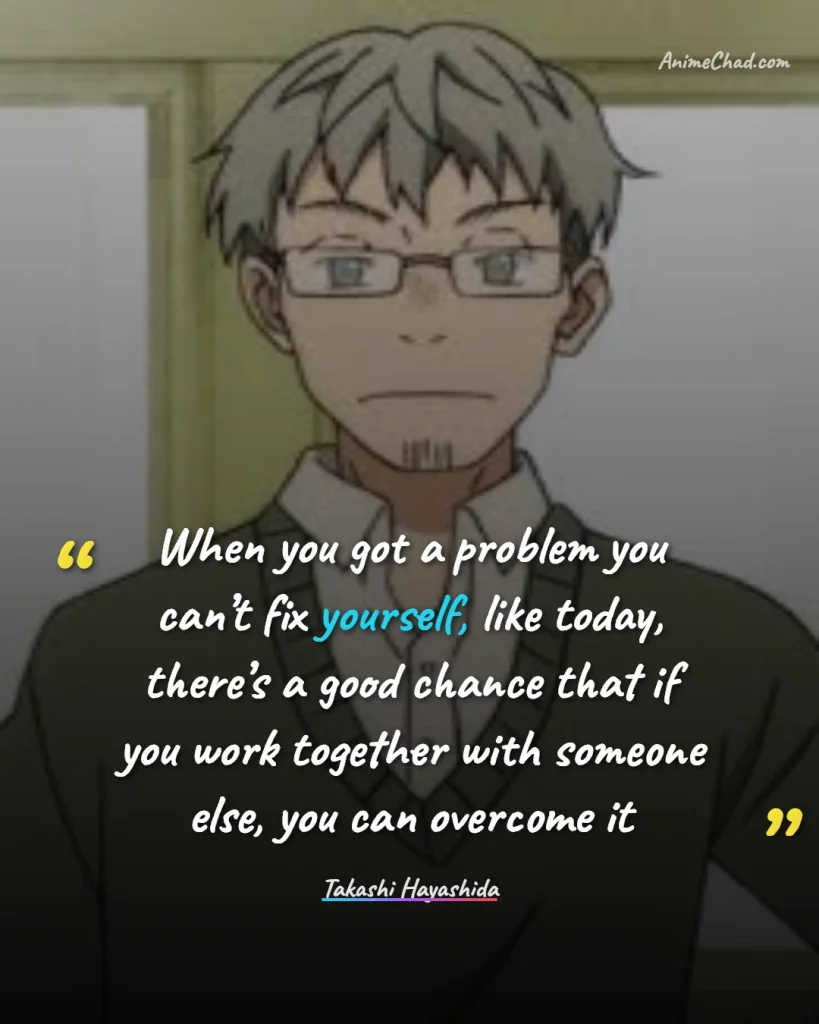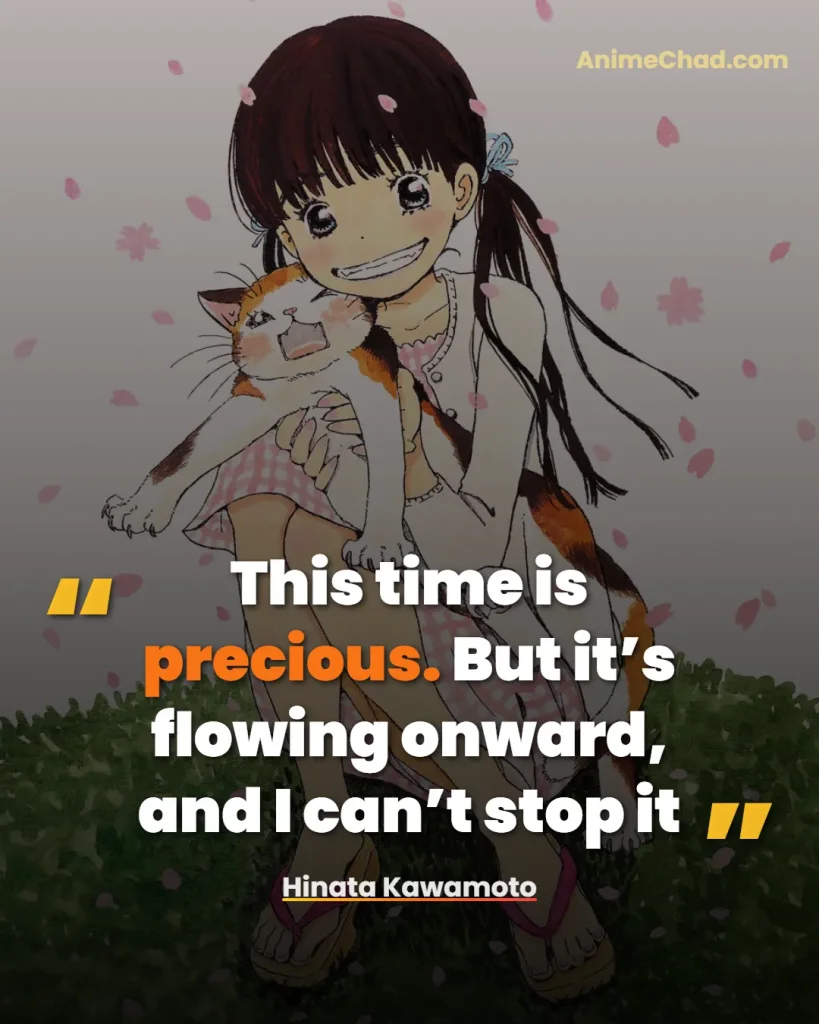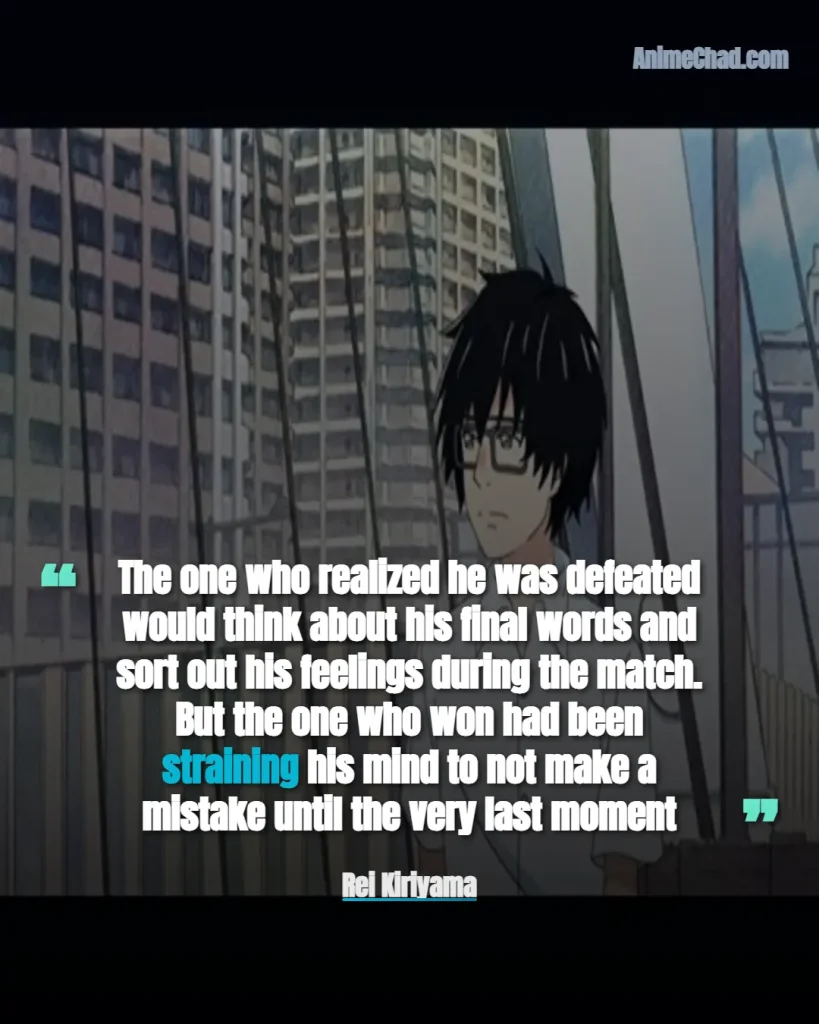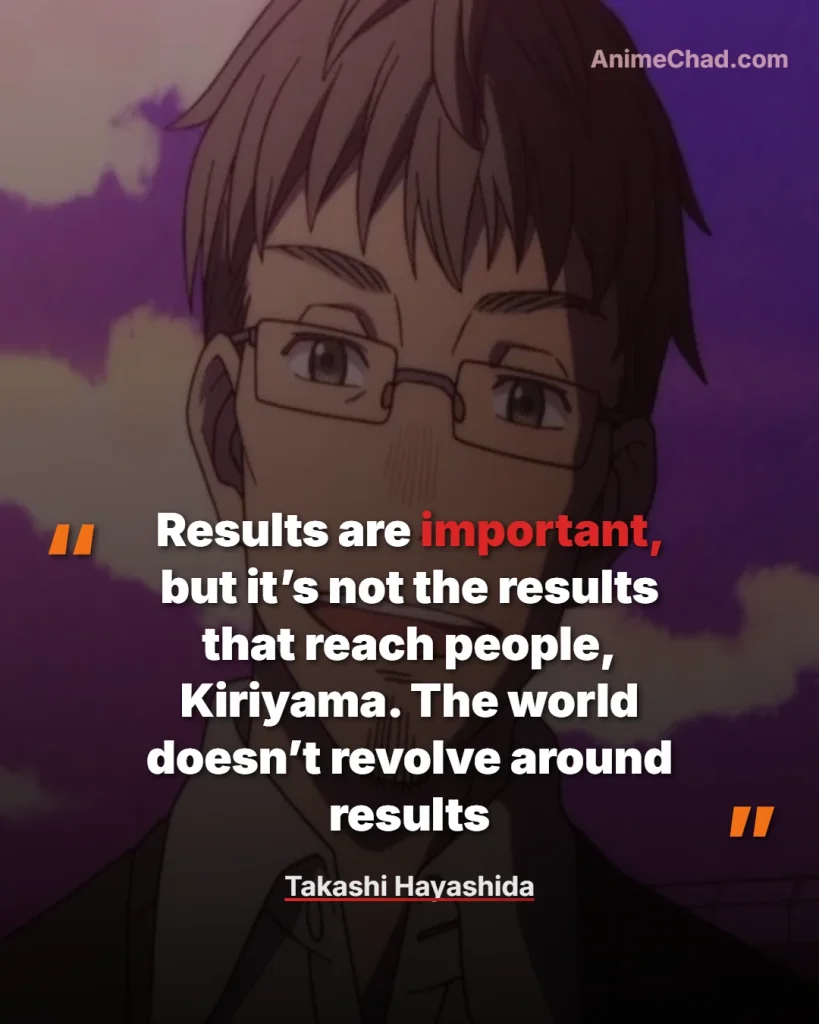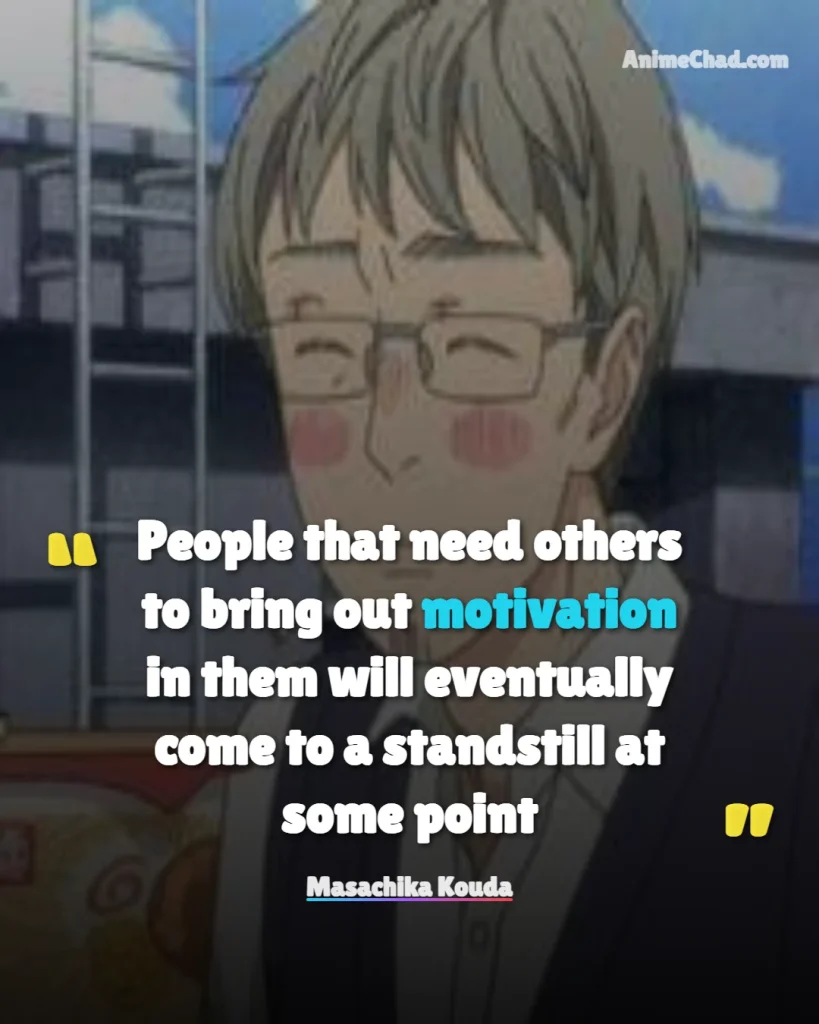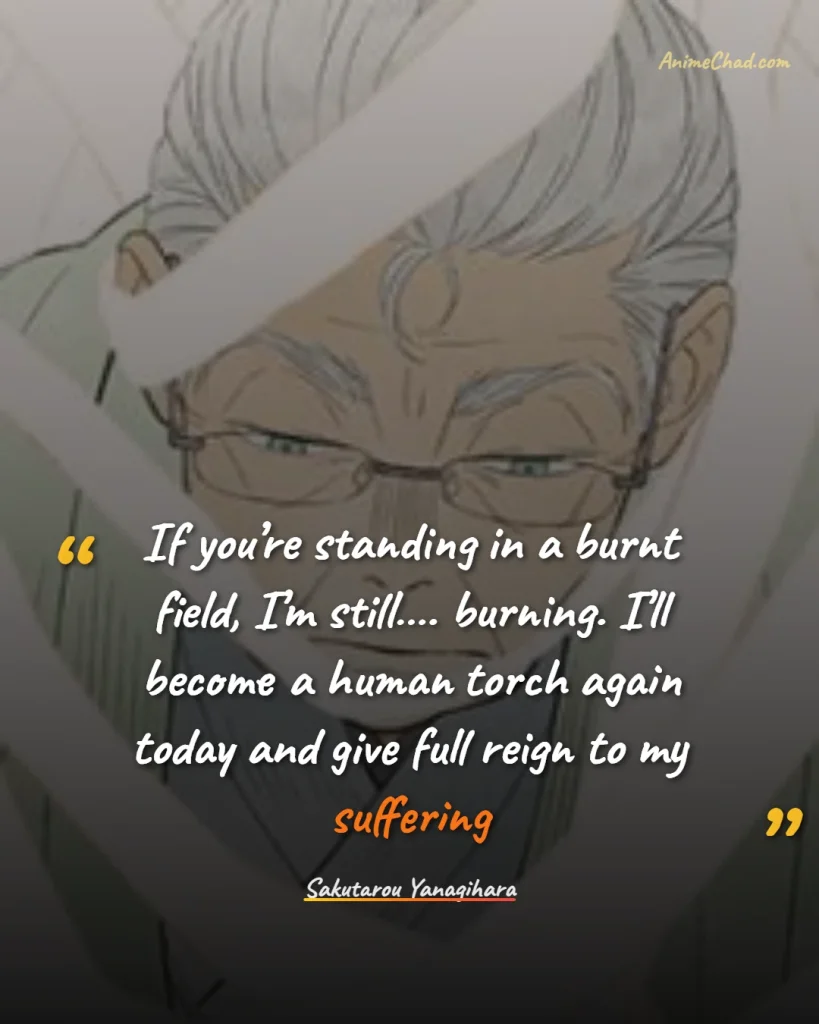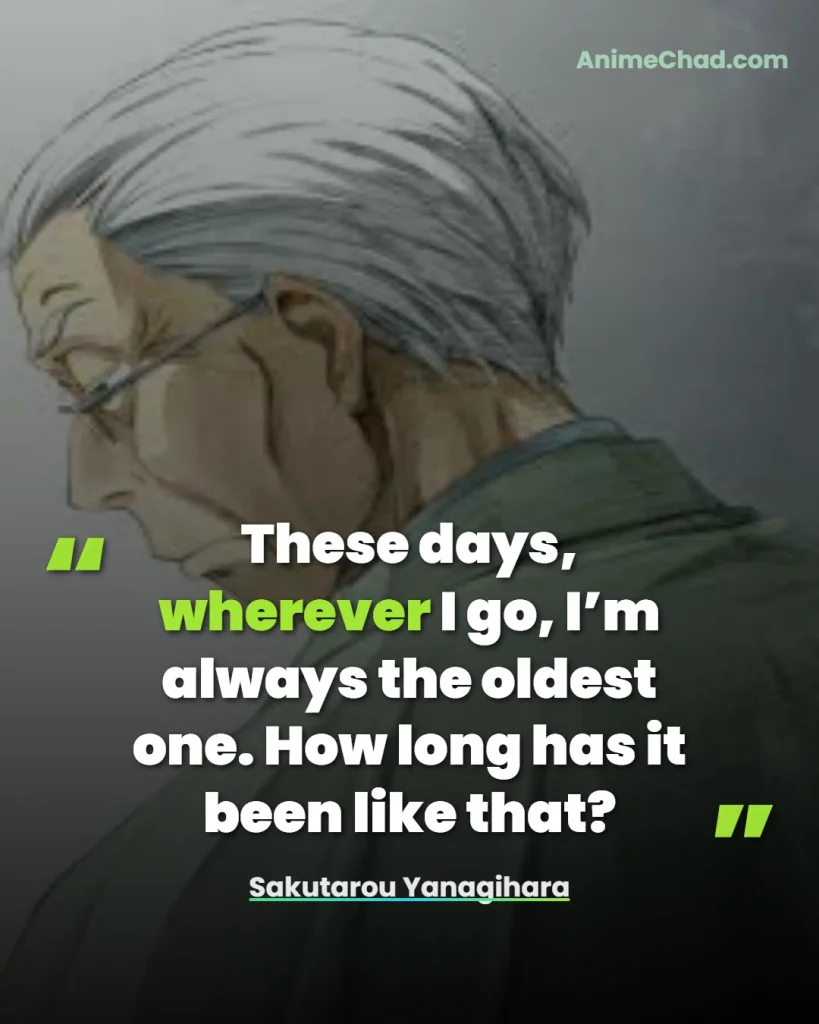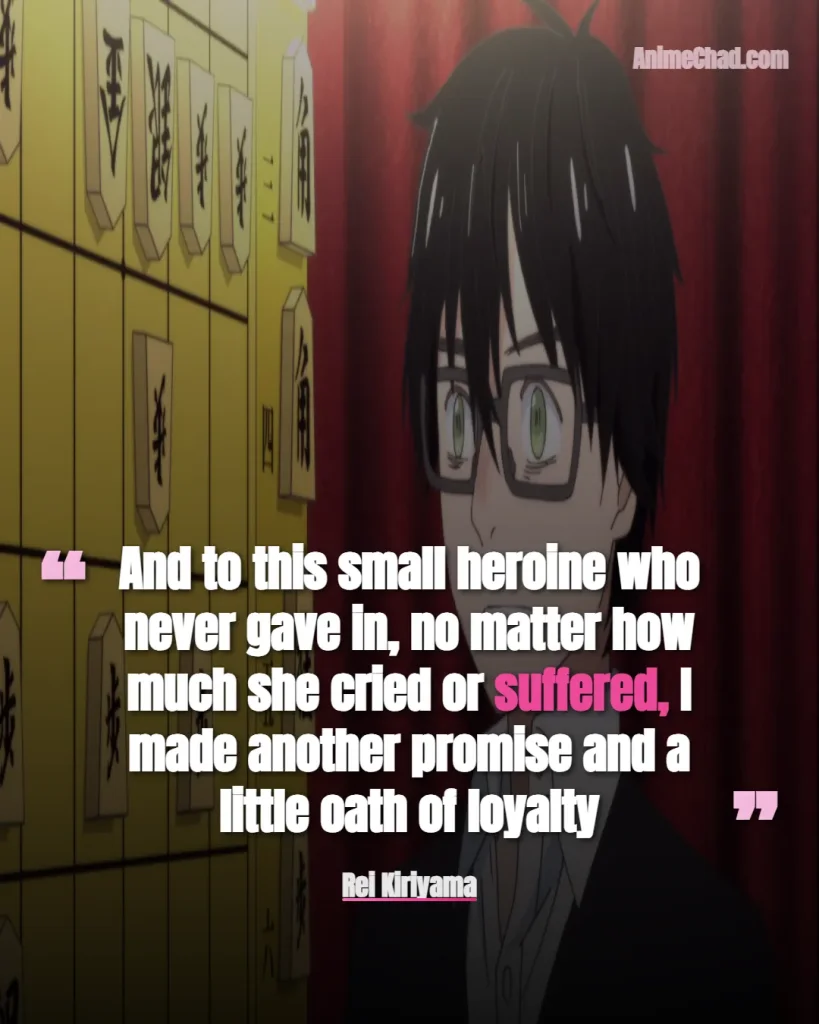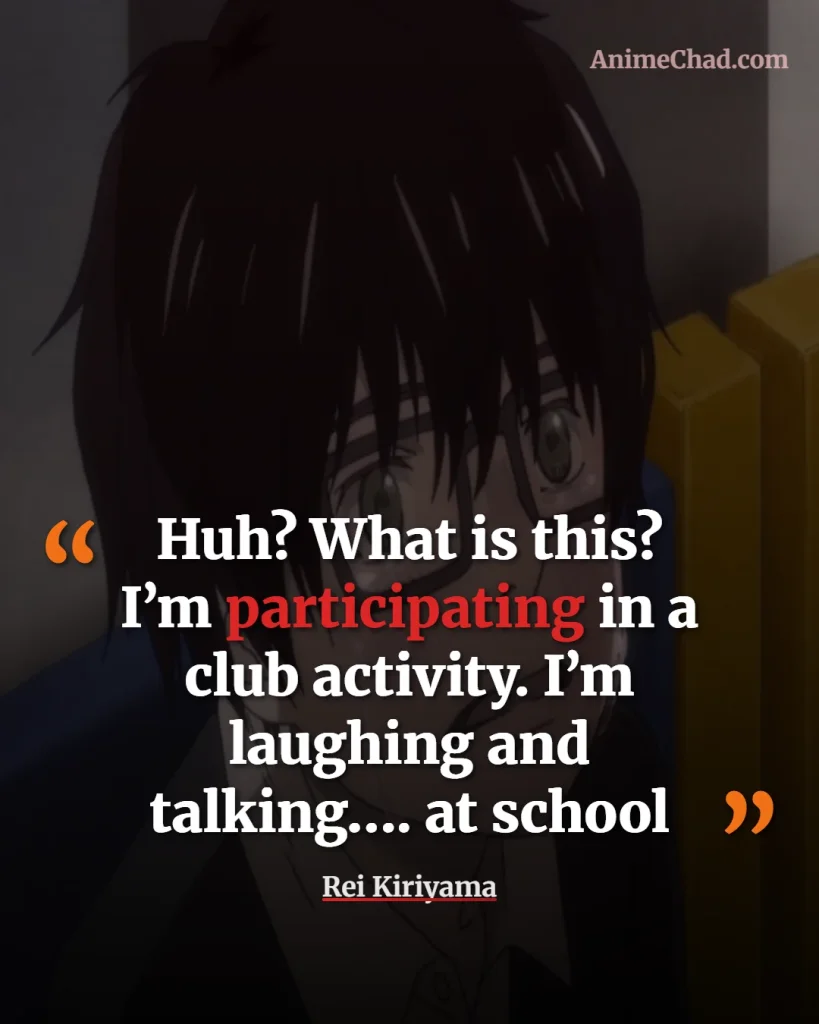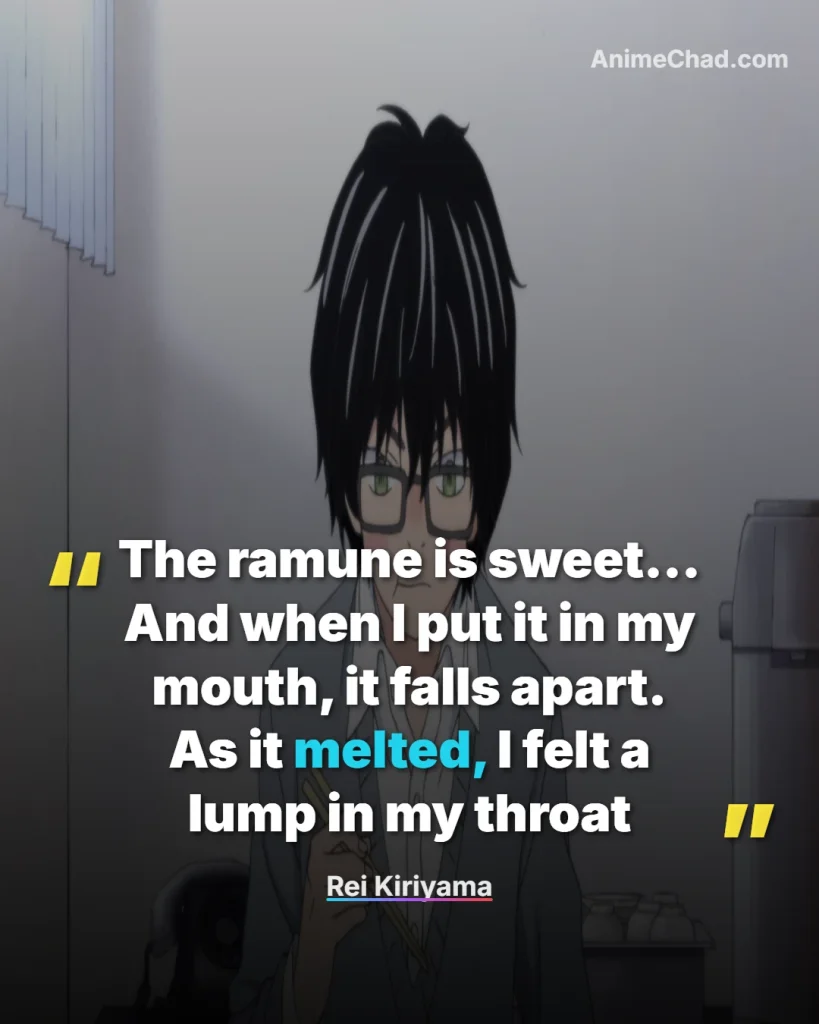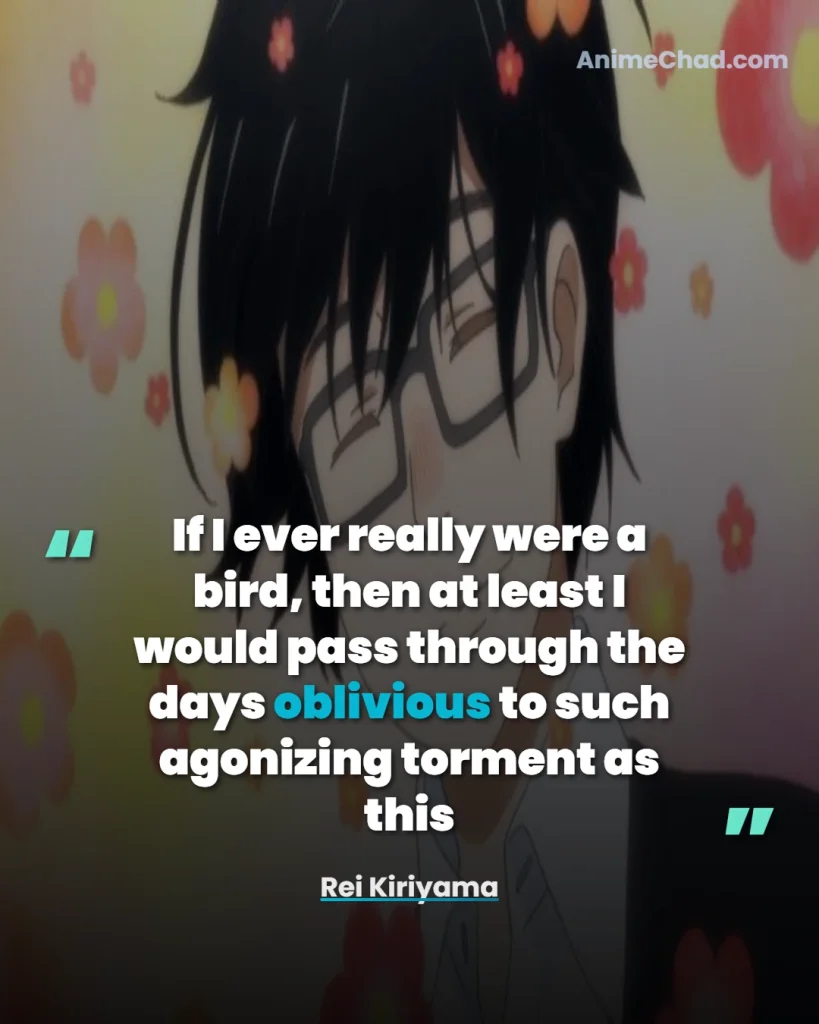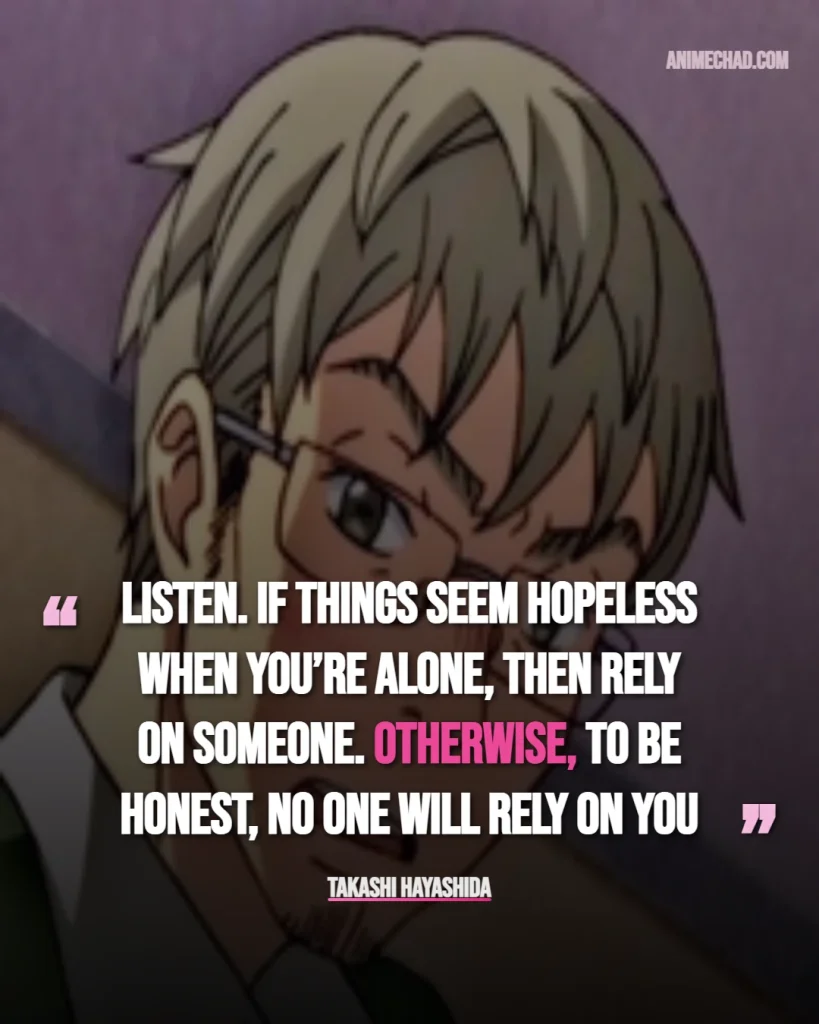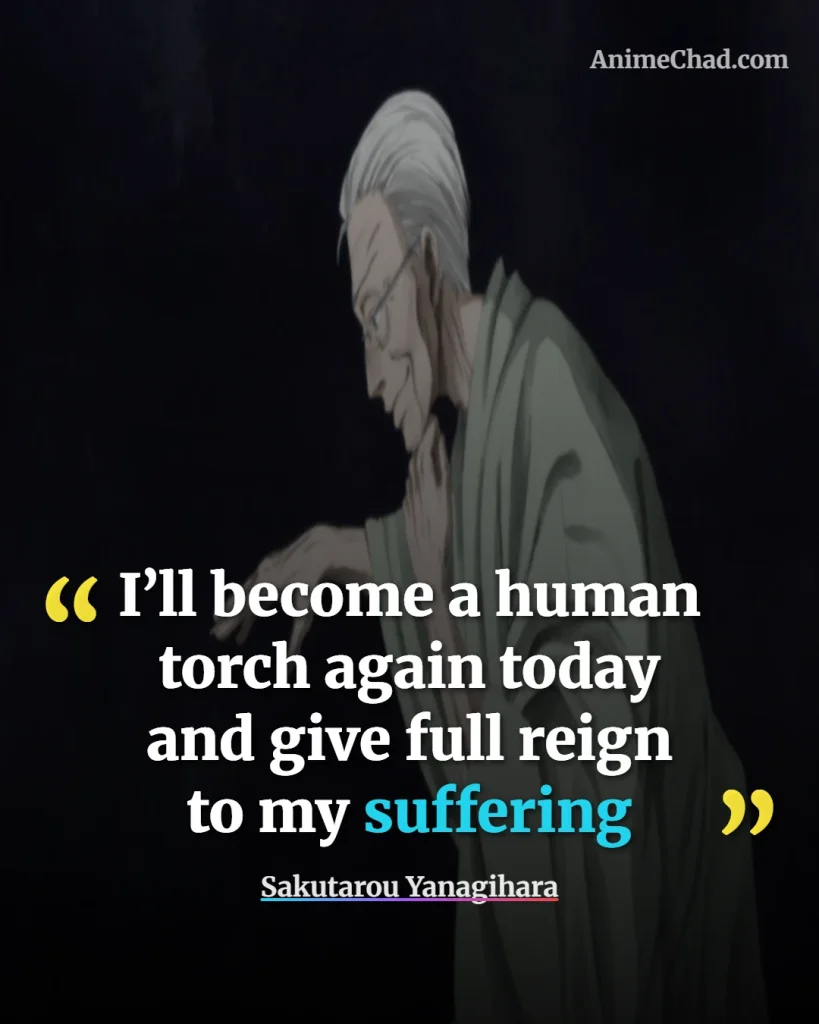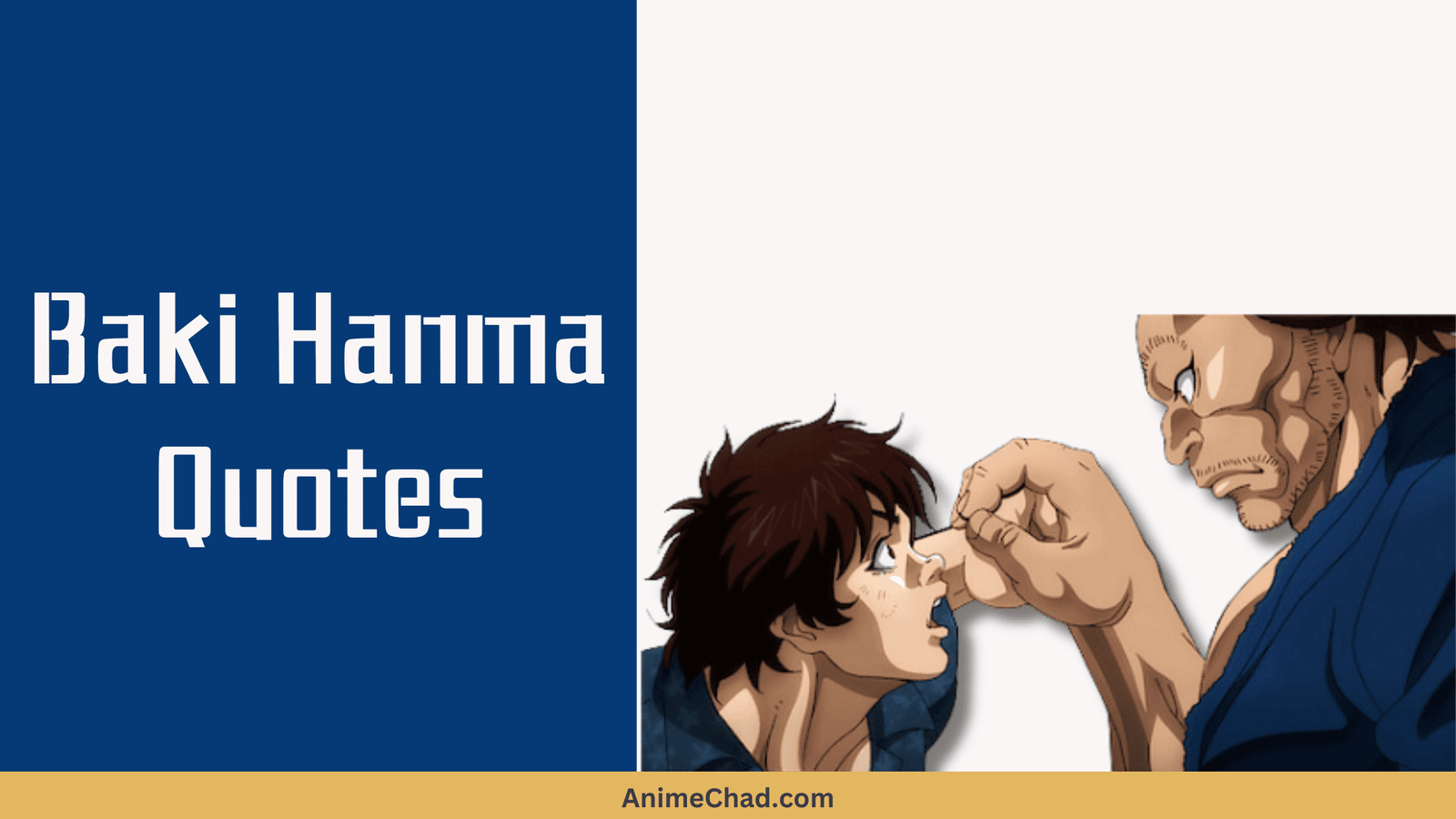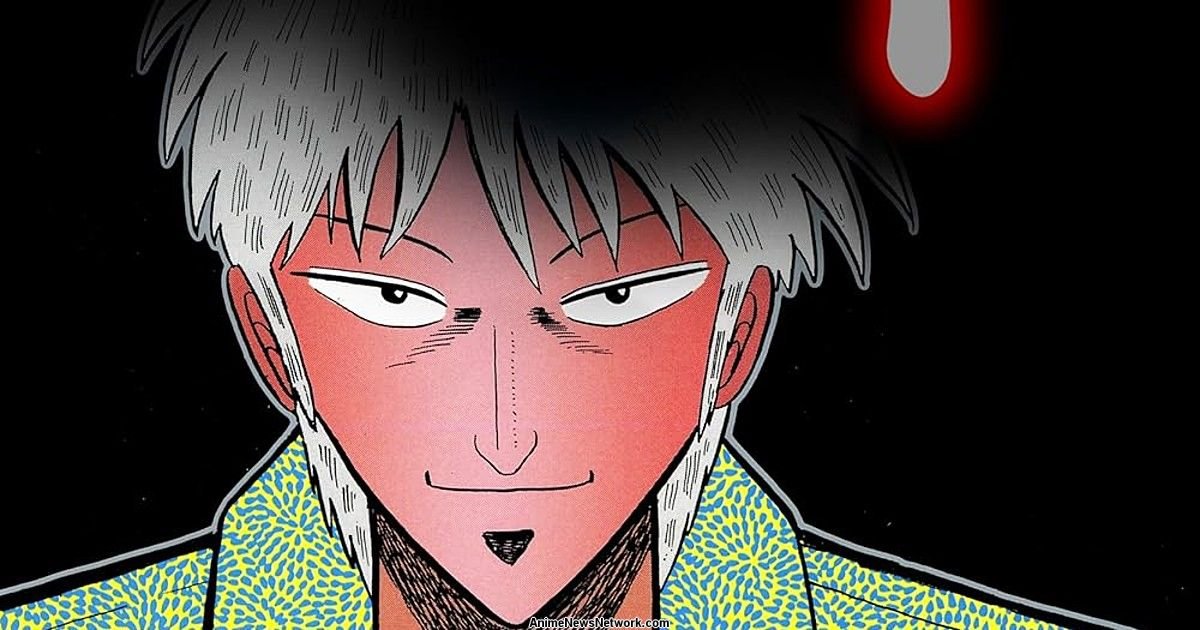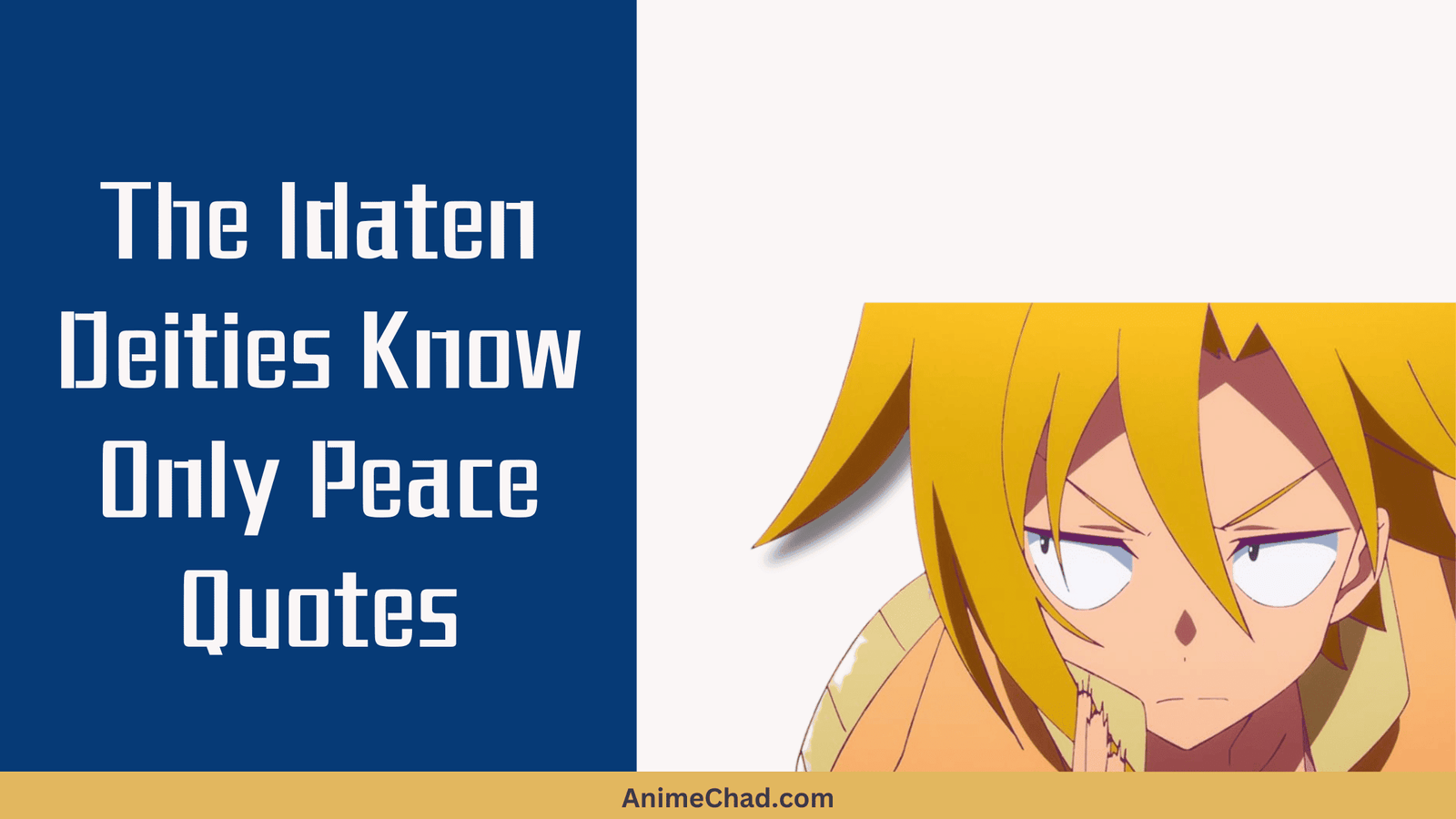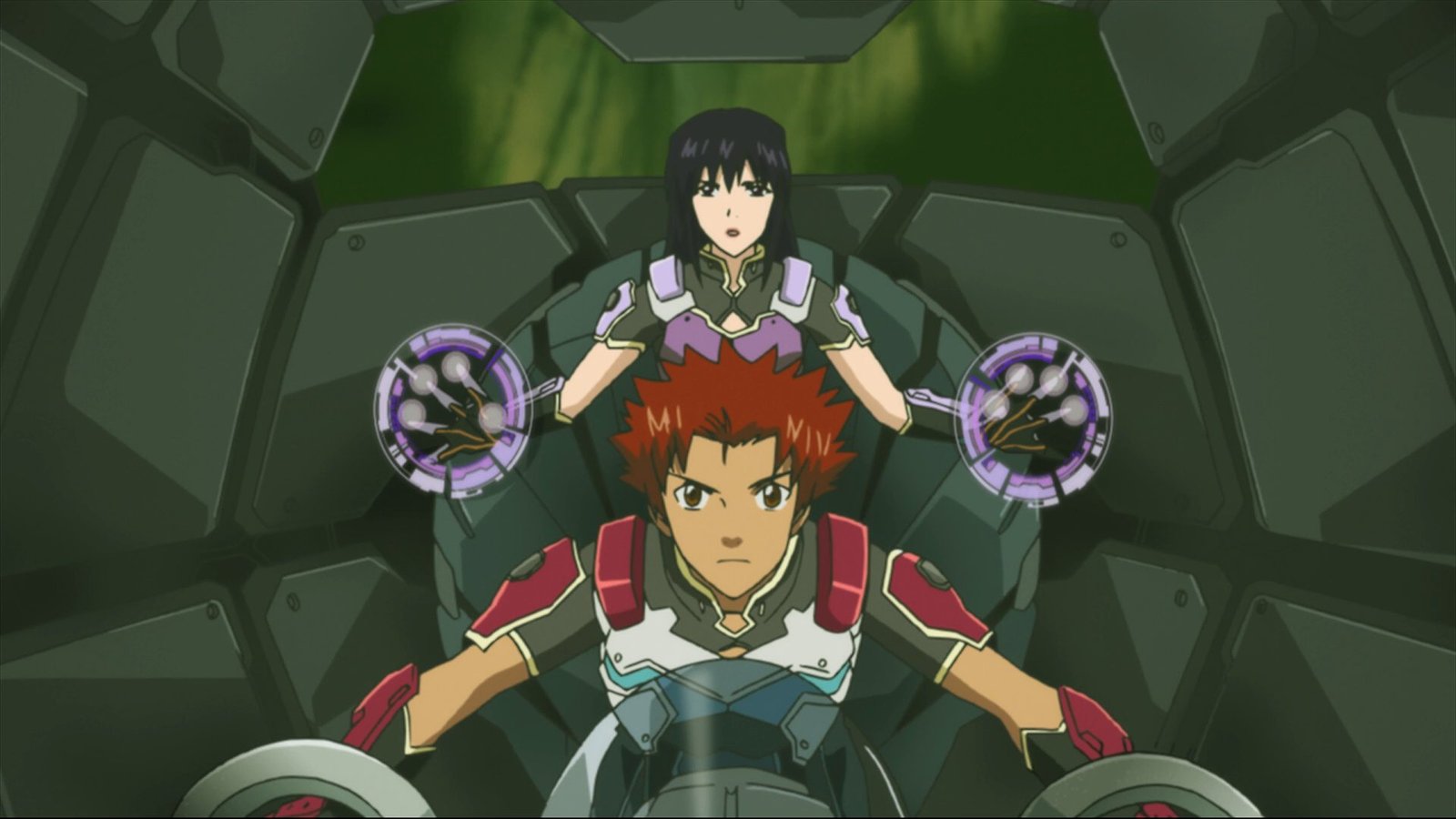March Comes in Like a Lion follows Rei Kiriyama, a young professional shogi player grappling with isolation, depression, and the pressures of a solitary career. The series delves into themes of loneliness, personal growth, family bonds, and the redemptive power of human connections amid life’s relentless challenges.
This curated collection of 25 quotes highlights pivotal moments of emotional depth, character evolution, and thematic resonance across various arcs, blending intense shogi battles with quiet, introspective scenes.
Becoming a pro is like jumping onto a moving train that doesn’t stop. You can never get off of it. Not until you lose and fall off
Episode 1 (Rei Kiriyama’s Stride)
Rei Kiriyama
This early reflection captures Rei’s fear of stagnation in his pro career, underscoring his initial isolation and the high-stakes theme of perseverance in solitude.
In this small universe, it’s an endless cycle of winning and losing until you start losing your mind. As you gasp, “I don’t want to lose.”
Episode 2 (The Lion and the House)
Rei Kiriyama
Amid a shogi match, Rei’s internal monologue reveals his mounting anxiety, marking his first steps toward confronting mental fragility and the cost of ambition.
The further you go, the steeper it becomes, and there won’t be anyone around you
Episode 3 (Light and Darkness)
Rei Kiriyama
During a reflective walk, this quote highlights Rei’s growing sense of abandonment in his career, tying into broader themes of loneliness while hinting at his need for support.
Curtains are more expensive than I thought, but now I’ll finally be able to sleep peacefully
Episode 4 (Full Moon)
Rei Kiriyama
In a peaceful domestic moment, Rei’s small act of self-care symbolizes emerging stability, showcasing subtle character growth from chaos to tentative comfort.
I say I have no reason to win, but why is it so painful when I lose? I am so half-hearted about everything
Episode 5 (The Silver Wolf)
Rei Kiriyama
Post-loss introspection exposes Rei’s emotional turmoil in a battle arc, emphasizing his internal conflict and development toward finding purpose beyond victory.
Everyone is working so hard. That’s right. How is it that my head fills up so fast with only my own problems?
Episode 6 (Little Lion, Big Lion)
Rei Kiriyama
Observing school life, this peaceful realization sparks Rei’s empathy, connecting to themes of interconnectedness and his gradual shift from self-absorption.
When you got a problem you can’t fix yourself, like today, there’s a good chance that if you work together with someone else, you can overcome it
Episode 7 (A Warm Nest)
Takashi Hayashida
Encouraging Rei during a low point, this advice reinforces reliance on others, pivotal for Rei’s arc in building trust and countering isolation.
This time is precious. But it’s flowing onward, and I can’t stop it
Episode 8 (The Kawamoto Sisters)
Hinata Kawamoto
In a family dinner scene, Hinata’s words capture the fleeting joy of bonds, highlighting her growth in appreciating moments amid the series’ theme of transient warmth.
I am a cuckoo, standing on top of the lives that were pushed aside. As they sing of spring, I hear a voice calling in the distance
Episode 9 (Chapter 9: The Cuckoo’s Song)
Rei Kiriyama
Rei’s poetic self-doubt during a shogi slump evokes guilt over his adoptive family, deepening themes of belonging and his emotional awakening.
The one who realized he was defeated would think about his final words and sort out his feelings during the match. But the one who won had been straining his mind to not make a mistake until the very last moment
Episode 10 (The King vs. The Queen)
Rei Kiriyama
In a tense shogi battle, this insight reflects Rei’s maturing perspective on competition, linking victory’s burden to personal resilience.
You’ve been coming to school while working. You make your own meals. You do the laundry, take out the trash. You fight… Make money, pay rent… So don’t tell me you haven’t accomplished anything
Episode 11 (The Lion and the Wolf)
Takashi Hayashida
Comforting Rei in a quiet talk, this validates his unseen struggles, fostering self-worth and tying into growth through everyday perseverance.
Results are important, but it’s not the results that reach people, Kiriyama. The world doesn’t revolve around results
Episode 12 (The King and the Queen)
Takashi Hayashida
During mentorship, this challenges Rei’s win-focused mindset, emphasizing human connections over achievement in the series’ core philosophy.
People that need others to bring out motivation in them will eventually come to a standstill at some point
Episode 13 (The Lion’s Move)
Masachika Kouda
In a shogi club interaction, Kouda’s words prompt Rei’s reflection on self-reliance, advancing his development in balancing independence and support.
If you’re standing in a burnt field, I’m still…. burning. I’ll become a human torch again today and give full reign to my suffering
Episode 14 (The Burnt Field)
Sakutarou Yanagihara
In the intense Burnt Field arc battle, this captures an elder player’s defiant spirit, inspiring Rei’s theme of enduring pain for growth.
These days, wherever I go, I’m always the oldest one. How long has it been like that?
Episode 15 (The Burnt Field, Continued)
Sakutarou Yanagihara
Reflecting on legacy in a shogi match, this evokes generational weight, connecting to Rei’s fears of isolation and the passage of time.
So what do you say at a time like this? You say to do your best
Episode 16 (Hinata’s Bullying Arc)
Hinata Kawamoto
Facing bullies in a peaceful yet tense family moment, Hinata’s resolve highlights resilience, mirroring the series’ encouragement of quiet strength.
And to this small heroine who never gave in, no matter how much she cried or suffered, I made another promise and a little oath of loyalty
Chapter 20 (The Heroine)
Rei Kiriyama
Narrating Hinata’s trials, this peaceful vow deepens Rei’s bond with the Kawamotos, symbolizing his evolution from observer to protector.
Huh? What is this? I’m participating in a club activity. I’m laughing and talking…. at school
Episode 17 (Club Activities)
Rei Kiriyama
In a lighthearted school scene, Rei’s surprise at joy marks social progress, tying into themes of normalcy amid his professional burdens.
The ramune is sweet… And when I put it in my mouth, it falls apart. As it melted, I felt a lump in my throat
Episode 18 (Summer Festival)
Rei Kiriyama
During a festival’s peaceful warmth, this sensory detail conveys suppressed emotion, illustrating Rei’s healing through simple connections.
If I wasn’t careful, it felt like something was going to leak from my eyes. So I used every ounce of will to hold it in
Episode 19 (Tears and Bonds)
Rei Kiriyama
Suppressing tears with the Kawamotos, this reveals vulnerability, advancing Rei’s arc toward accepting emotions in the family theme.
I am so half-hearted about everything
Chapter 25 (Half-Hearted Lion)
Rei Kiriyama
In a reflective chapter pause, this self-critique during a loss exposes inner conflict, fueling growth toward wholehearted engagement.
If I ever really were a bird, then at least I would pass through the days oblivious to such agonizing torment as this
Episode 20 (The Cuckoo’s Flight)
Rei Kiriyama
Extending his bird metaphor in a shogi downtime, this yearns for escape, underscoring depression’s toll and subtle hope for freedom.
Listen. If things seem hopeless when you’re alone, then rely on someone. Otherwise, to be honest, no one will rely on you
Episode 21 (Teacher’s Guidance)
Takashi Hayashida
In a mentorship battle prep, this reinforces reciprocity, pivotal for Rei’s development in seeking and offering support.
Even something dull is still something
Episode 22 (Shimada’s Hometown)
Rei Kiriyama
Inspired by Shimada in a quiet talk, this positive reframing shows Rei’s matured optimism, linking to themes of finding value in the ordinary.
I’ll become a human torch again today and give full reign to my suffering
Chapter 30 (Burnt Field Revisited)
Sakutarou Yanagihara
In the arc’s climactic battle, this reignites passion amid defeat, inspiring Rei’s resolve and the series’ motif of burning through adversity.

